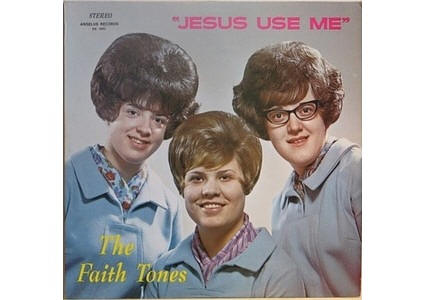Psychology is a religion. Like most religions, it has a core of beliefs –kidnapped from the vault of public cultural wisdom– that are at least partly true. Many of these insights can be fully apprehended in the work of good writers. Shakespeare wrote his plays hundreds of years before psychology became a formal discipline, but his works are filled with insights into human behavior that remain, often, more profound and more revelatory than any psychology text book. Mark Twain, Ingmar Bergman, Woody Allen, Bob Dylan… all great artists as a matter of course demonstrate remarkable insights into human behavior. Few of them would pretend that they have mastered a “science” that provides them with reliable knowledge about why people do what they do. Even Karl Marx had tremendous insights into the human mind, and he was far better at predicting human behavior than Freud ever was. (Ask yourself how often a persons’ actions, beliefs or attitudes reflect, intimately, his or her economic interest?)

Psychologists insist that their field of study is a “science”, like math, and physics, and chemistry. Here’s the problem: a reasonably competent engineer using the principles of physics and math and geometry could build a bridge that would, with reasonable certainly, support the weight of a specified load. Is there a reasonably competent psychologist out there who could take an anxious, depressed teenager, and guarantee that he or she will be happy with the application of a treatment based on his theories of human psychology? Could a reasonably competent psychologist even assure you — with justified confidence– that she understood exactly what the problem was? Could he examine your failing marriage and prescribe a course of action that will certainly save it?
Any psychologist might tell you that a particular woman is insecure and has low self-esteem and requires a husband who can be like an approving father-figure in her life. An economist might tell you she’s looking for someone with money. Neither of them will be right all of the time, and probably not even most of the time, but I would bet on the economist most days.
Psychologists do a lot of labeling because it’s a tool of the industry. Without the named syndrome, there can be no treatment paid for by insurance companies. Without a named syndrome, there is no authority, no industry, no power.
Like all religions, it claims to know who is saved (the sane) and who is not (the mentally ill). Unlike most religions– in North America and Europe, at least– it has been able to insinuate itself into government institutions and the justice system so that the weight of government authority can be brought to bear against heretics. No court would accept the testimony of a priest that a particular individual is a sinner, but it would accept the conclusion of a psychiatrist that a particular individual is irrational. I’m not sure that the psychiatrist’s testimony is really any more authoritative than the priest’s.
A heretic is someone who either doesn’t meet the psychologist’s standard for “normalcy”, or rejects the authority of psychology altogether. Heretics can be detained indefinitely, deprived of life and liberty and property, and condemned to perpetual incarceration. They will be labeled: “unstable”, “neurotic”, “schizophrenic”, “obsessive-compulsive”, “depressed”, “PTSD”, and so on. Labels are very powerful. Most people are convinced that these labels actually correspond to a real set of standards and rules that meet the criteria of scientific “evidence”. They don’t.
Consider this: if a bridge collapsed killing or injuring dozens of people and there was legal action and the court heard from engineers about the structure of the bridge and the materials used and the design, you could be reasonably sure that the information presented is soundly based on tested and proven scientific information. You could bring in any number of engineers and they would all agree, at least, on the basic principles of design and material. But when a psychologist testifies, for example, that a man has “psychopathic tendencies” and is lacking in “empathetic response” or a woman (Teresa Lewis) has “dependent personality disorder”, we have no idea if these are real, objective syndromes, or just his opinion all dressed up in polysyllabic babble. It would not be difficult at all to find another person with the title “psychologist” to testify that the subject has no syndromes at all: he’s just bad, or she’s just “needy”.
In fact, in the past few decades, it has become almost impossible to have a suspect classified as mentally ill during the commission of an offense in U.S. courts. (I don’t agree with this development either– for different reasons– among other things, for example, Teresa Lewis has an IQ of 72.).
Like religion, psychology has had it’s schisms and heresies. Freud, Jung, Adler, Skinner, Catholic, Protestant, Hindu, Moslem…
Unlike most religions, psychology tries to claim it is a science. It is a religion claiming to be a super-religion, so far above subjective experience that all competing religions must bow before it. In that respect, it is very much like a religion: all other religions are false. A devout psychologist believes he has an explanation for religion that is based on his scientific knowledge of how your mind works. He’s partly right. It’s the way your mind works. And the way his mind works, with it’s compulsive obsession with creating for itself the illusion that it understands why people do what they do or feel what they feel.
Psychology is no more a science than Calvinism. Like Calvinism– and a broken clock– it’s get things right twice a day.
Like religion, psychology is used by those in power to exploit and oppress the powerless, to pay itself, to charge people for its service of declaring a person sane, or cured, or recovered.
Like a religion, most of the assertions made by psychologists can’t be proven or disproven. This man is schizophrenic. This man is possessed. This woman is in denial. This woman is self-righteous. This child has a trauma. This child is guilty. This person is depressed. This person is in despair.

